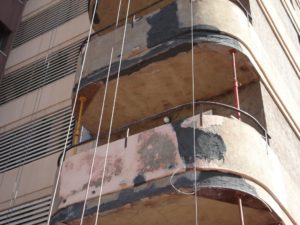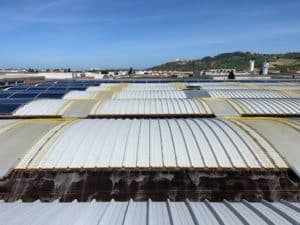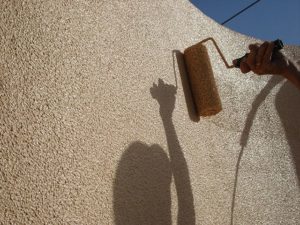
Types of swimming pool purifiers
In order to keep a pool clean, it is essential to have a suitable purifier and to carry out good maintenance. There are various types of purifiers for swimming pools, including sand, hypochlorite or dichlorine, automatic dosing or copper-silver ionisation. To choose the right purifier, it is important to take into account some factors such as the size of the pool, the type of filter, the motor, the purification chemical and, of course, to be advised by the pool experts at Rodriguez Ros.
It is also essential to have suitable filtration systems, such as skimmers or pumps and filters, and to take into account the standards for the correct operation of the purifier. In addition, there are various accessories and equipment for pool maintenance, such as covers, pool cleaners, heating and safety equipment. A good choice of the right technical equipment and careful maintenance will guarantee a healthy pool in optimum condition.
Types of swimming pool purifiers according to how they work
There are different types of swimming pool purifiers depending on their operating system. The following are the different types of swimming pool purifiers according to how they work:
Sand scrubbers
Sand filters are one of the most common and well-known types. They work by filtering the dirt and debris present in the pool water through a sand filter. This filter consists of different layers of sand and gravel that retain the dirt and return clean water to the pool.
Hypochlorite or dichlorine scrubbers
Hypochlorite or dichlorine scrubbers use chlorine to disinfect the pool water and kill germs. These systems require a larger amount of chlorine and more processing time than other types of scrubbers. In addition, regular monitoring of the chlorine level in the water is recommended.
Automatic dosing scrubbers
Automatic dosing purifiers are purification systems that provide a constant and adequate level of chemical product in the pool water. This type of purifier ensures that the level of disinfection of the water is adequate and constant, without the need for manual measurements or adjustments.
Copper-silver ionisation scrubbers
Copper-silver ionisation purifiers are a purification system that uses copper and silver ions to disinfect the pool water. Thanks to the action of these ions, the presence of germs and bacteria is eliminated, keeping the water cleaner for longer and reducing the consumption of chemical products.
In any case, it is advisable to consider the specific characteristics of each pool and evaluate which type of purifier is the most suitable depending on the size and use of the pool in question.
Swimming pool filtration systems
Skimmers
Skimmers are essential elements in a pool filtration system. Their function is to continuously remove the dirt that floats on the surface of the water, such as leaves, insects, oils or grease. Skimmers suck up the surface water and send it through a circuit to the filtration pump. There are different types of skimmers on the market that adapt to the needs of each pool. Some have a built-in pre-filter to retain large particles before they reach the filter. Others can be adjusted in height to adapt to the water level and prevent them from sucking in air.
Pumps and filters
Filtration pumps are the elements responsible for transporting the water from the pool to the filter to be purified and then returned to the pool once it has been cleaned. The choice of the right pump will depend on the volume of the pool and the type of filter used. Filters are the heart of the filtration system, being responsible for retaining impurities in the water. The most common filters are sand filters, diatomaceous earth filters and cartridge filters. Each of them has its pros and cons, and we must choose the right one for our needs. Sand is the most commonly used filter media in swimming pool filters, being durable and easy to maintain. Diatomaceous earth filters, on the other hand, are capable of retaining smaller particles than other types of filters. Finally, cartridge filters are the cheapest and easiest to maintain, although their filtering capacity is lower.
Regulations to be complied with
It is important to take into account the regulations established by each autonomous community regarding the operation and maintenance of water treatment plants. In addition, we must check that it complies with the safety regulations against overpressure and the regulations governing electrical installations. In some cases, it may be necessary to have a swimming pool specialist carry out the installation and maintenance of the installation. In any case, compliance with the regulations is essential to guarantee the safety of bathers and the correct operation of the filtration system.
Tips for proper and safe swimming pool maintenance
Safe cleaning products
It is important to use appropriate and safe cleaning products to keep the pool in good condition. It is recommended to avoid aggressive chemicals that can damage the skin and eyes of bathers. Instead, chlorine, bromine or hydrogen peroxide based products can be used, which are effective in removing bacteria and algae in the water. It is important to follow the manufacturer’s instructions and not to mix different chemicals, as they can be dangerous.
Daily operating hours of the sewage treatment plant
To maintain water quality and ensure that the pool is functioning properly, it is necessary for the filter to run for 6 to 8 hours a day. It is important to set a regular schedule for the filter to operate automatically to ensure that the water is clean and healthy. In addition, it is recommended to install a timer for the purifier to program the time it should operate.
Adequate filtering system
Filtration systems, such as skimmers, pumps and filters, are crucial to maintaining water quality in the pool. It is necessary to choose the right filtration system according to the volume of water in the pool and to comply with the established regulations. Regular maintenance is important to ensure proper operation and prevent the proliferation of bacteria.
The importance of maintenance for the health of bathers
Good pool maintenance is essential to ensure the health of bathers and prevent illness. Proper and regular maintenance is necessary to avoid the accumulation of bacteria and other contamination. In addition, the established regulations must be followed to guarantee the safety of bathers and prevent accidents. In short, good maintenance is the key to enjoying a healthy pool in optimum conditions.
- In order to maintain water quality it is necessary to use appropriate and safe cleaning products
- It is important to run the sewage treatment plant for 6 to 8 hours a day and to establish a regular schedule.
- Filtration systems are crucial to maintaining water quality and must be chosen appropriately.
- Good maintenance is essential to ensure the health of bathers and prevent illnesses
Choosing the type of purifier we want for the pool should be done before building it, so we can choose to renounce the chemicals of chlorine pools to choose saline pools that filter the water with natural products. If you need help to choose the type of pool that best suits your family, call us, we will give you the best advice.
